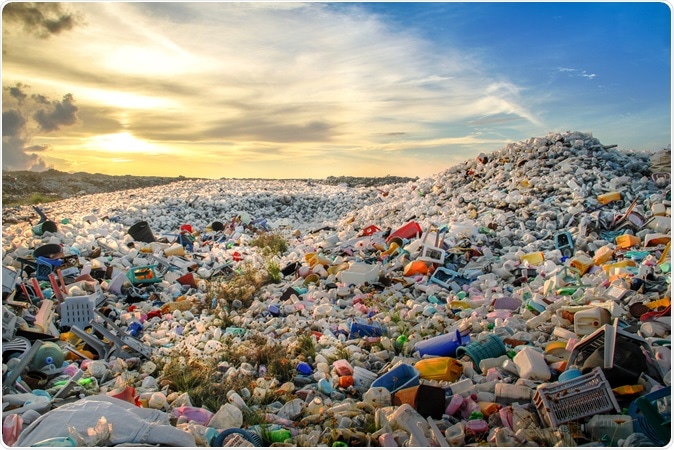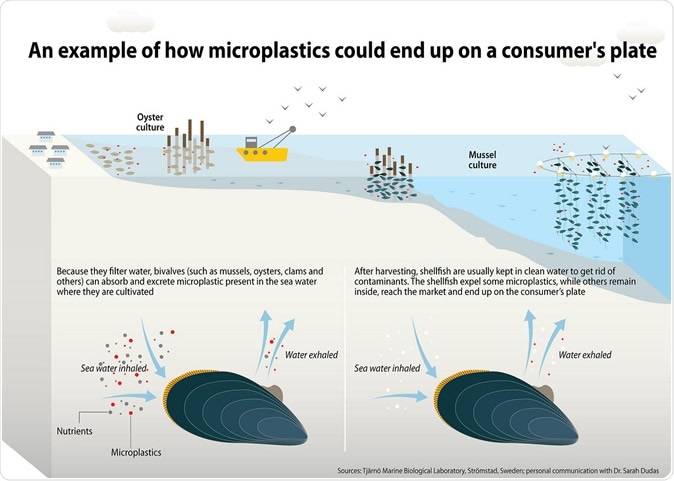Nearly eight billion metric tons of plastic finds its way into the oceans each year. This huge amount of plastic either washes ashore or breaks down into tiny pieces that are less than 5 millimeters in diameter and are called microplastics. These microplastics remain suspended in the waters or sink in according to their weights. These in turn are taken in by the marine life including fishes, shellfishes, molluscs, clams etc. Some of these thus make their way into the human food chain via birds or directly.
Until now it was suspected that these microplastics might be present in human gut. Researchers finally got down to testing human excreta and they did find microplastics in human stools. The results of this new study conducted by the Environment Agency Austria, was presented at the United European Gastroenterology meeting in Vienna.

Waste plastic bottles and other types of plastic waste at disposal site. Image Credit: Shutterstock
Philipp Schwable, a gastroenterologist at the Medical University of Vienna, who led the study explained that all participants of the study tested positive for plastics in their stool. He said that plastics are present everywhere and humans are being exposed to these from all quarters. For this study they first tested the stool samples of eight participants from eight different countries - Austria, Italy, Finland, Japan, the Netherlands, Poland, Russia, and the UK. All the participants were asked to maintain a food diary for a week and then donate a sample of their stools in sterile glass containers provided to them. These containers were shipped to the analytical chemists at a laboratory in Vienna, who used Fourier-transform infrared micro-spectroscopy to detect presence of the microplastics in the stool.

An example of how microplastics could end up on a consumer's plate. Image Credit: Marine Litter Vital Graphics, Cartographer: Maphoto/Riccardo Pravettoni
Results showed that each of the eight individuals had plastics in their stool. Commonest form of plastics found was polyethylene terephthalate that comes from polythene bags. Other forms of plastics noted were polypropylene – commonly found in bottle caps and polyvinyl chloride or PVC found in plastic pipes. Nine out of ten types of plastics searched for were found in all the samples. The amount of plastics found were 20 particles of microplastics per 10 grams of stool sample.
Schwable explained that this pilot study proved that plastics are found in stool across the globe and now they are planning larger studies with greater number of participants. They also plan to study the harmful effects of these plastics on humans. The researchers estimate from these results, “more than 50% of the world population might have microplastics in their stools.”
These microplastic particles could infiltrate the lymphatic system of humans and animals say experts. The long term harm from this on the intestines, hormone systems and other organs is yet to be studied in details. The authors urge governments and populations alike to reduce plastic use and increase recycling. They urge improvement in disposal of plastics and prevention of plastic contamination of the food chain.